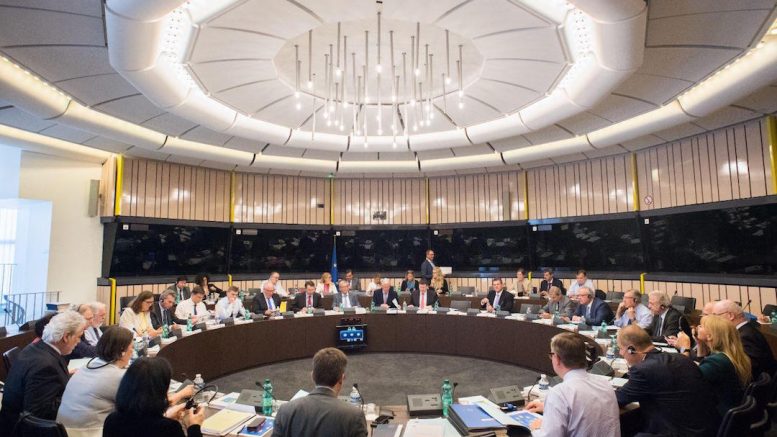The European Commission said it approved under EU state aid rules the transfer of radioactive waste liabilities to a new public fund in Germany in return for the payment of €24.1 billion by nuclear power plant operators.
The Commission concluded that “state support is proportionate to the objective.”
Under the plan, Germany intends to transfer the liabilities relating to the management of radioactive waste and spent fuel from nuclear power plant operators to the German state.
“In return for being released from their radioactive waste liabilities, nuclear power operators in Germany have to make a cash payment to the new public fund of about €24.1 billion,” said the Commission.
“This is made up of a basic amount equivalent to the provisions already set aside by the operators for this purpose and a risk premium aimed at covering the risk of cost increases in the future.”
The Commission’s assessment concluded that Germany’s decision to take over the radioactive waste management liability involves state aid.
“This is because the total cost of radioactive waste management is subject to significant uncertainty and the planned payment of about €24.1 billion does not protect Germany fully from the impact of such cost overruns,” said the Commission.
While the amount to be placed in the new public fund is based on the best cost estimates currently available, these calculations are uncertain.
“The main objective of the state aid measure is to secure the necessary funds for radioactive waste management in public hands and to protect these funds from any changes in the financial situation of the nuclear operators,” said the Commission.
“The German authorities regard the measure as necessary in the context of the government’s decision in 2011 to phase out nuclear electricity production by 2022.
“In the absence of the measure, Germany could have faced a situation where financial difficulties of the nuclear operators would have forced it to cover the full cost of radioactive waste management.
“The Commission has concluded that the support granted does not exceed what is necessary to achieve this objective and that the competition distortions created by it are limited.”
